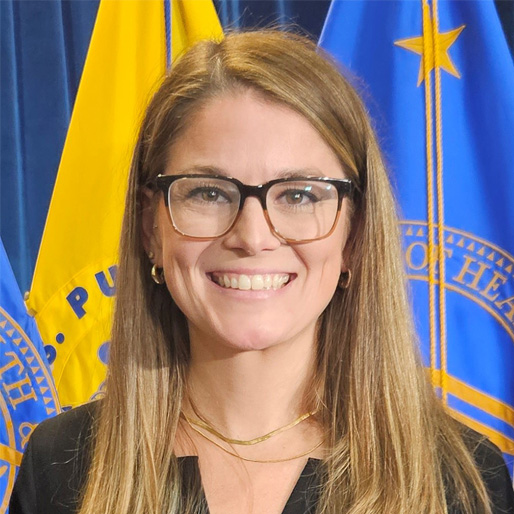International Day of Women and Girls in Science

"Learn to adapt and grow with changing technologies. Learn how to take advantage of a learned technical skill in one area and apply it to another. You can make a difference."
Lisa Bentley
Senior Data Scientist
Lisa Bentley is a Senior Data Scientist with BARDA. She has been with ASPR for five years.
How long have you been in science and technology?
Since starting undergraduate college, it will be about 16 years in academic and professional science/technology. I chose to study for a Biotechnology concentration under my Bachelor’s Degree in Chemical and Biomolecular Engineering. I really have been around science and technology my whole life though. I participated in science fairs in middle school through high school as well as worked in digitizing medical records in a surgeon’s office during high school.
Do you have a specialty or focus area?
As of now, my specialty is bioinformatics; specifically designing and developing analysis pipelines for bioinformatics use cases.
What motivated you to take this career path?
For as long as I can remember, I always wanted a career with the end goals of saving lives or improving the health of others. I can barely handle the sight of my own blood, let alone someone else’s. So I knew a frontline healthcare worker was not the path for me. As I grew up and learned that science expands our knowledge of health, which is further accelerated and enabled by technology, I was fascinated by emerging technologies to advance medicine. I’ve always loved breaking down problems into smaller pieces to understand how the puzzle fits together.
What specialty training or education prepared you for this career path?
First, I would say math is very important. Math was my first favorite subject. Chemistry followed as a grew older. I would say I learn the most from open ended tasks requiring designing and implementing an end-to-end solution. Also having classes/work assignments using databases and Python or other scripting for automating processes or analyses. To call out some specific advanced courses that I feel are beneficial: Data Structures, Differential equations, object-oriented programming, biochemistry, process engineering, numerical methods, genomics, and epigenetics.
Like any type of training or education, it was learning how to apply or adapt what I learned to new circumstances. How to take advantage of a skillset from one experience and apply or grow it in a future one. I started out in more general systems and data integration out of college. Through this, I gained invaluable experience in how to quickly teach myself programming and scripting. When seeking out a postgraduate program, I wanted to both further my knowledge of the biotechnology space I was passionate about, but also advance my software skills. I noticed a growing need for bioinformatics and personnel who have strong backgrounds in both software/data systems and biochemistry/biology. Completing a M.S. in bioinformatics was the perfect advancement of continuing to grow my programming skills and biotechnology knowledge simultaneously.
What would you say to a woman who is considering a career in science and technology?
Embrace the power of science. Embrace the nerd. Embrace the geek. When it comes to seeking understanding; jump first, fear later. Never shy away from it. Don’t expect a straightforward path to your goals. Pay attention to details. Learn to adapt and grow with changing technologies. Learn how to take advantage of a learned technical skill in one area and apply it to another. You can make a difference.

